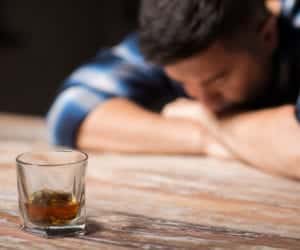What Happens When You Stop Drinking Alcohol Suddenly?

What Happens When You Stop Drinking Alcohol Suddenly? Is it Safe to Do Alone?
Alcohol abuse that has reached the level of a moderate to severe addiction, also referred to alcohol use disorder, is a condition that affected over 15 million adults in the United States, according to a 2015 National Survey on Drug Use and Health (NSDUH). For those addicted, it may be exceedingly difficult to stop on their own. However, stopping abruptly by yourself has its own set of dangers. What happens when you stop drinking alcohol suddenly? In this article, we will explore why stopping alcohol abuse abruptly can be dangerous.
Stopping drinking alcohol suddenly can have serious consequences. Find out more here.
What is The Problem?
To understand what happens when you stop drinking alcohol suddenly, we must first explore the changes that occurred due to excessive alcohol consumption.
When a person regularly drinks alcohol in high amounts, it has an effect of the GABA system. Usually, an increase in activity in this system results in a reduction of anxiety. As the person continues to abuse alcohol, the brain has to adjust by increasing GABA activity; however, what happens when you stop drinking alcohol suddenly is that this system is left out of balance as it can no longer maintain this new balance that was created to account for high levels of ethanol. When alcohol is stopped abruptly, the effects of alcohol are reversed and the GABA activity leads to high levels of anxiety among other alcohol withdrawal symptoms which last until balance is finally restored – this process usually takes around a week.
While most drugs have withdrawal symptoms, alcohol dependence is one of the few that can actually lead to alcohol withdrawal death.
Alcohol Withdrawal Symptoms
So, what happens when you stop drinking alcohol suddenly? Cold turkey alcohol withdrawal is a condition where the body is suddenly left without alcohol – the substance that is has grown dependent on. During the time it takes your body to reacclimate to a life without alcohol, a person experiences withdrawal symptoms.
Not everyone experiences these cold turkey alcohol withdrawal symptoms, but it usually occurs in people with a moderate to severe dependence on alcohol. The factors that increase the risk of developing the symptoms include the severity of the addiction or how frequently and how much they drank, their age, and their health among others.
The most commonly experience withdrawal symptoms include the following:
- Severe anxiety
- Insomnia
- Nausea
- Vomiting
- Headaches
- Tremors in the hands, or shaky hands
- Profuse sweating
- Hallucinations
- Seizures
The Most Dangerous Side of Alcohol Withdrawal
In roughly 5 percent of alcohol withdrawal cases, a condition known as delirium tremens occurs. It can in fact lead to alcohol withdrawal death if the symptoms are not treated and monitored. This is the reason why any person with alcohol dependence is usually advised by a doctor to seek withdrawal treatment at rehab if they are planning to break their addiction.
Delirium tremens tend to occur after roughly 48 to 72 hours have elapsed after stopping alcohol consumption abruptly. There isn’t a surefire way to tell if they are going to occur, just ways to determine the likelihood of them forming, such as the person’s health and how severe the addiction was.
The symptoms include:
- Rapidly beating heart
- Fever
- High blood pressure
- Profuse sweating
- Seizures different from the usual expected seizures
- Intense hallucinations
- Confusion
Stopping alcohol consumption after an addiction has formed should not be done without consulting a doctor or an alcohol rehab specialist. If you are considering quitting alcohol, then call WhiteSands today at (877) 855-3470 to get professional advice.
If you or a loved one needs help with abuse and/or treatment, please call the WhiteSands Treatment at (877) 855-3470. Our addiction specialists can assess your recovery needs and help you get the addiction treatment that provides the best chance for your long-term recovery.
